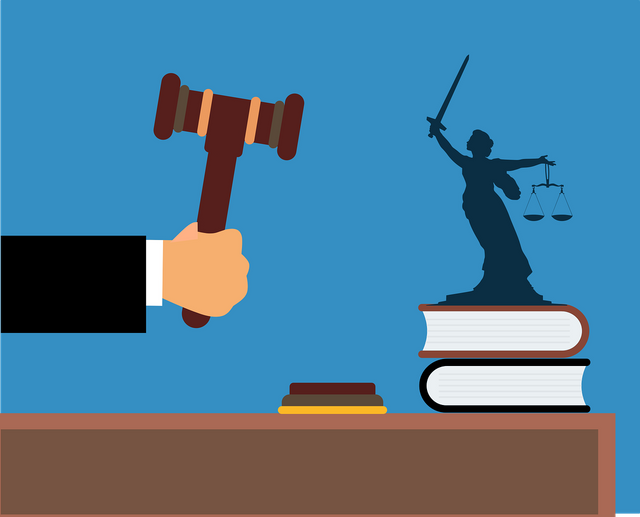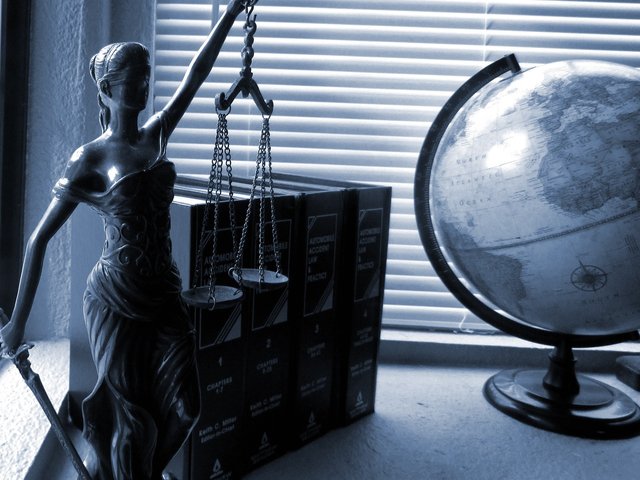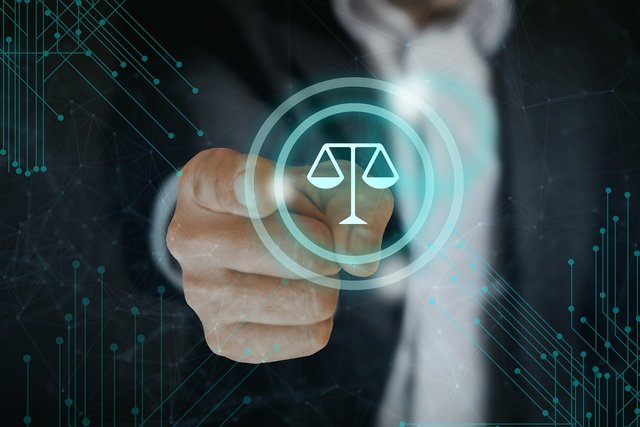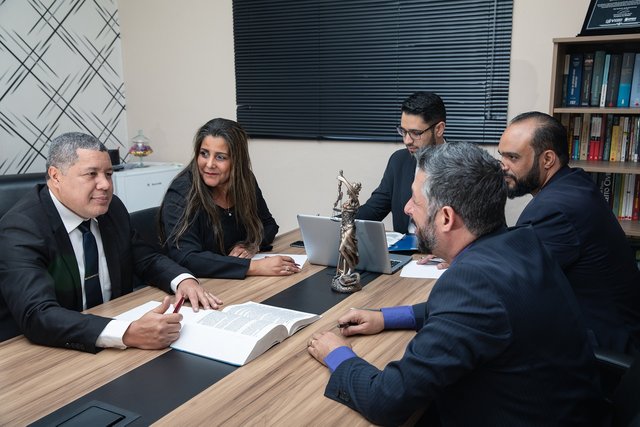Hello Everyone
This is @max-pro from, #Bangladesh
Assalamu Alaikum friends. Wishing everyone good health. Hope you all are well. By God's grace I am fine too. Today I am here to participate in a wonderful learning competition organized by our teacher @anasuleidy. The Topic of this contest is SLC22-W4 / Procedural Law. So this is a very important competition where we can learn some important things. Below are some questions that I will answer correctly. So let's get started.
| Part - 1 : |
|---|
Choose a law from your country and explain why you consider it to be part of procedural law or procedural law.
"The Code of Civil Procedure 1908 (CPC)" can be selected to explain its procedural aspect by selecting a law from Bangladesh.
| Why it is part of procedural law |  Source Source |
|---|
"The Code of Civil Procedure, 1908" is a procedural law as it lays down the rules and procedures for the conduct of court proceedings for civil cases. It provides the proper structure of the relationship and proceedings between the court, the plaintiff and the defendant.
It is considered part of procedural law because :-
| Determination of Jurisdiction of Courts | The CPC determines which courts can try which types of cases. |
|---|---|
| Filing and Handling of Cases | It determines how cases are to be filed, the process by which documents are to be filed in court. |
| Interim Orders | It provides guidance on the power to issue interim orders and injunctions during litigation. |
| Appeals and Revisions | The CPC lays down the procedure for appeals and the rules for revision of cases. |
How principles of procedural law apply here:
| Principle of Equality | The CPC ensures that both plaintiffs and defendants have equal rights and opportunities. |
|---|---|
| Principle of Validity | As per CPC directives, all stages of civil case management must be legally valid. |
| Principle of Economy | Various time limits are prescribed to ensure speedy disposal of cases. |
| Principle of Good Faith | Participants in court cases are not allowed to give false information or destroy evidence. |
| Advertising Policy | Court proceedings are open, but in some cases internal hearings are permitted. |
Hence the CPC helps in the smooth conduct of court proceedings and ensures the administration of justice between the parties. It is considered as an important procedural law of Bangladesh.
| Part - 1 : |
|---|
I have indicated which principles of procedural law are present in that law and why.
The Code of Civil Procedure, 1908 (CPC) contains several principles of procedural law. These principles and the reasons for their presence are explained below.
| 01 | Principle of Equality |
|---|
Appearance: The CPC ensures that both plaintiffs and defendants have equal access to court.
Reason: Both parties to the case can present their case in court and have equal right to collect and present evidence. No favoritism is done to any party.
| 02 | Principle of Legality |
|---|
Attendance: The CPC prescribes that all proceedings and court orders must be in accordance with law.
Reason: Documents, evidence, and proceedings filed in court must be legal. For example, the filing of lawsuits, issuance of summons, and scheduling of hearings are all governed by specific rules.
| 03 | Principle of Economy |
|---|
Attendance: CPC lays down time to complete the case process expeditiously and efficiently.
Reason: Timely hearings, use of Alternative Dispute Resolution, and avoidance of unnecessary delays are rules to avoid prolongation of cases.
| 04 | Principle of Good Faith: |
|---|
Attendance: The CPC prescribes that participants in court proceedings (plaintiffs and defendants) should act honestly and faithfully.
Reason: Perjury, tampering with evidence or fraudulent behavior is inadmissible and punishable in court.
| 05 | Principle of Publicity: |
|---|
Attendance: Court proceedings are generally open to the public. However, in some cases (such as personal information or confidential matters) hearings are conducted in secret.
Reason: This principle is present in CPC so that justice is transparent and public confidence is maintained.
| 06 | Device Principle (Principle of Disposition): |
|---|
Presence: The CPC ensures that parties can gather and present evidence to justify their claims.
Reason: Both parties have the right to present evidence and present arguments to ensure proper resolution of the case.
Hence "The Code of Civil Procedure, 1908" effectively implements these principles of procedural law which help to conduct court proceedings fairly, transparently and expeditiously.
| Part - 2 : |
|---|
Mr. Ramirez rents a commercial space from Mr. Perez. But it appears Mr Perez has begun using the premises as a home, something which was prohibited by a clause in the contract.
-|
Mr. Ramirez decided to go to court and demand that the contract be voided for breach of that clause. During the case, Mr. Ramirez promoted a judicial inspection of the commercial premises that Mr. Perez was actually using the premises as a home, the court agreed to the judicial inspection and determined the day, time and date of carrying the same out.
| Say, based on what you have seen in class, which event in the case do you label as "procedure", and explain the reasons for your answer. |
|---|
Analyzing the cases described above, it can be seen how "process" and "method" are distinct and related to each other.
Events identified as "processes" :-
- Proceedings: Proceedings are the entire legal process or judicial stage of a case, which is conducted for the purpose of arriving at a final verdict.
Facts:
| 01 | Mr. Ramirez filed suit in court and demanded rescission of the contract for breach of contract. |
|---|---|
| 02 | The court accepted the hearing of the case and proceeded with the decision of the judiciary. |
| 03 | Court orders verification of genuineness of use of premises through judicial inspection. |
- Reason : These facts lead to the final judgment of the entire case, which is part of the process. This process is done through a combination of court, plaintiff and defendant proceedings.
Events identified as "Methods":-
Procedure : Procedure is the specific rules or steps included in the legal process to complete the work according to the law.
- Facts :
| 01 | Mr. Ramirez sought judicial inspection of the commercial premises. |
|---|---|
| 02 | The court orders visitation by fixing a specific date, time and place. |
| 03 | The inspection process is carried out as per the prescribed rules and framework. |
- Reason : Judicial inspection and fixing of date, time and procedure for the same is procedure. This is a special step that is part of the main process.
"Proceedings" means the judicial proceedings of the entire case. "Procedures" are the specific steps, such as judicial review, that proceed with the case and are governed by specific rules. Process and method are interrelated and process cannot be complete without method.
| Part - 3 : |
|---|
Mrs. Maria is driving a car and her brakes go out and she collides with Pedro's car, causing several damages. Given the situation and unable to reach an agreement, Pedro decides to sue Maria and file a case in court and after leaving the court he learns that the car belongs to Mr. Manuel.
Identify the procedural issues according to what was explained in class and identify them in each character present in the case. Explain why you gave your answer.
In order to identify procedural law issues in this case, the following issues will be analyzed.
Procedural Subjects:
Procedural law generally consists of three subjects.
| 01 | Plaintiff | One who files a complaint |
|---|---|---|
| 02 | Defendant | The person who answers the complaint or is sued against. |
| 03 | Third Party | Who may be involved in the case even if not directly for relevant reasons or interests. |
Procedural matters of litigation and their identification.
Plaintiff:
| 01 | Identified Person | Pedro. |
|---|---|---|
| 02 | Reason | Pedro is demanding compensation for the damage to his car and has filed a court case. |
Defendant:
| Identified Person | Mrs. Maria. |
|---|---|
| Reason | Mrs. Maria was driving the car at the time of the accident and the collision occurred because her brakes did not work. As a result, a case was filed against him. |
Third Party:
| Identified Person | Mr. Manuel. |
|---|---|
| Reason | After filing a court case, Pedro learns that the car used in the accident is actually owned by Mr. Manuel. Manuel can be included in the case as a third party, because his car is related to the accident. |
So Pedro is acting as plaintiff, as he is seeking damages. Mrs. Maria is the defendant, as she is alleged to be responsible for the accident. Mr. Manuel is a third party, as he is the owner of the vehicle and the outcome of the case may affect his interest. These procedural issues play an important role in the proceedings and ensure the fairness of the trial process.
So to conclude, Procedural law lays down rules and steps in the legal process that help ensure justice. Legal process and procedure are interrelated, where process is the entire legal process and procedure is the specific step of that process. The roles of plaintiffs, defendants and third parties are relevant in this regard, as their activities and rights advance the basic structure of the legal process. As a result, procedural law plays an important role in effectively managing the judicial process. Those who are interested in knowing about law will understand many things by participating in this contest. My cousin is a lawyer, so I sometimes get ideas from him. I am very happy to participate in this contest.

So I am Inviting my lovely Steemian friends @stef1, @ulfatulrahmah, @kouba01, @selina1 to Participate in this Competition.




X promotion link: https://x.com/maxpro1412/status/1876437577206743125?t=6UyeQWbfA2AXr7rEF1jWCw&s=19
Downvoting a post can decrease pending rewards and make it less visible. Common reasons:
Submit
Recuerda siempre escribir algo en tus tweet.
Downvoting a post can decrease pending rewards and make it less visible. Common reasons:
Submit
ok sir
Downvoting a post can decrease pending rewards and make it less visible. Common reasons:
Submit
Felicidades amigo, ha presentado todas las tareas de forma magistral y las ha adecuado perfectamente, respondiendo de forma directa y bien detallada al respecto.
El derecho nos permite el conocimiento de las leyes, pero no es exclusividad de los abogados, como bien dicen nuestros tutores, no sirve de nada conocer nuestros derechos si no sabemos defenderlos.
La ley es justicia para todos.
Saludos
Downvoting a post can decrease pending rewards and make it less visible. Common reasons:
Submit